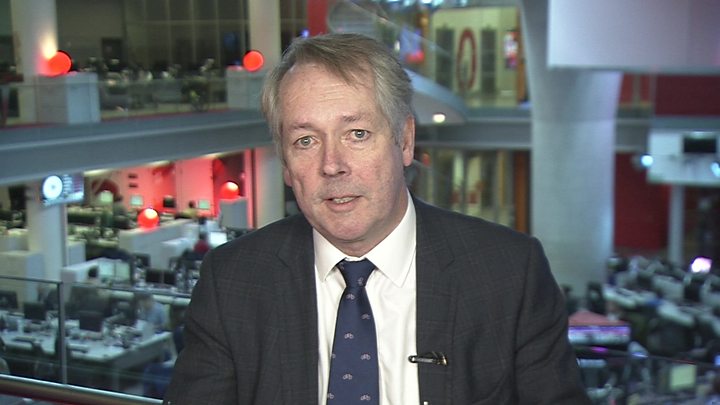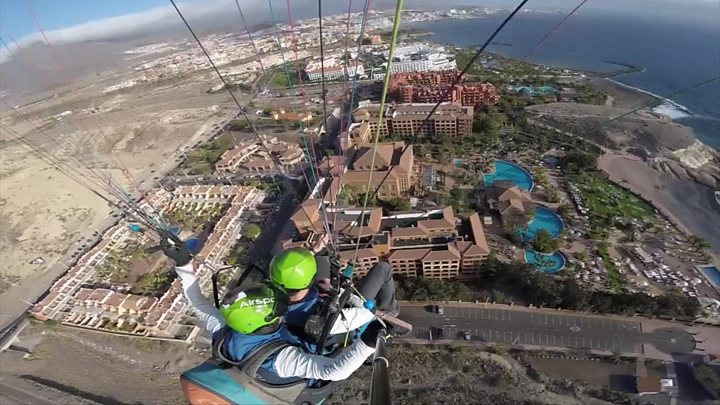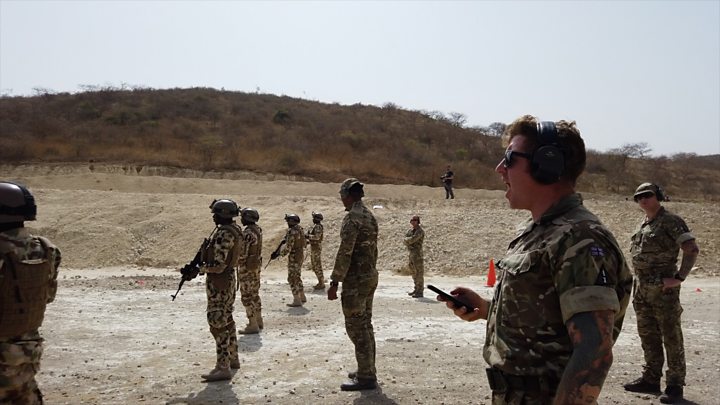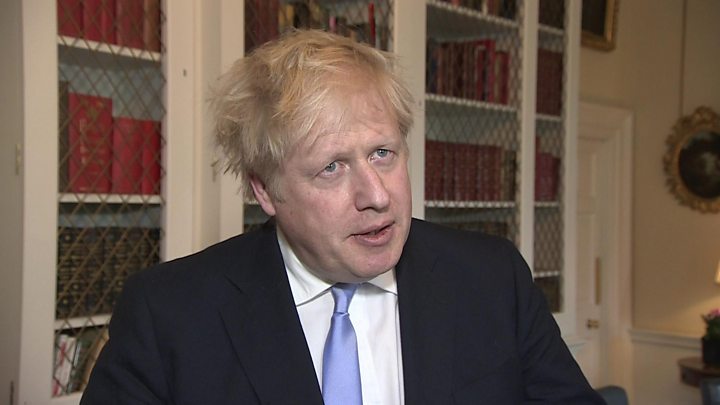Media playback is unsupported on your device
Up to a fifth of the workforce may be off sick during the peak of a coronavirus epidemic in the UK, the government says in its latest plans.
Police may need to focus on only the most serious crimes and maintaining public order if the virus spreads.
The military could also provide support to emergency services if needed.
The government's response is in its first stage - containing the outbreak - with the number of UK cases rising from 39 to 51 on Tuesday.
If the virus becomes widespread, some non-urgent hospital care may be delayed to focus on treating those who are infected, while recently retired doctors and nurses may be called back to work.
Other possible measures include school closures, reducing large-scale gatherings and working from home.
Prime Minister Boris Johnson said the government was committed to doing "everything possible" to "prepare for all eventualities" and its priority was keeping the country safe.
Speaking in the House of Commons later, Health Secretary Matt Hancock said it was "becoming more likely we will see widespread transmission" of the virus across the UK.
He said that tackling the spread was "a national effort", adding: "We need everyone to listen to and act on official medical advice."
What do I need to know about the coronavirus?
- LIVE UPDATES: UK unveils coronavirus action plan
- HOW IS THE UK PLANNING FOR AN OUTBREAK: How prepared are we?
- WHAT ARE THE SYMPTOMS? A simple guide
- WAYS TO PREVENT CATCHING IT: How to wash your hands
- HOW TO SELF-ISOLATE: What you need to know
- WHERE ARE WE WITH A VACCINE? Progress so far
- A VISUAL GUIDE TO THE OUTBREAK: Virus maps and charts
- WHAT'S THE IMPACT ON ECONOMY? Carney warns of 'large' shock
While the vast majority of patients will have a mild to moderate illness, similar to seasonal flu, a minority will require hospital care and a small proportion could die, the plans warn.
There are no estimates given in the plans but they do warn of an increase in deaths, particularly among vulnerable and elderly groups.
Young children can become infected and "suffer severe illness", but overall the illness is less common in the under-20s.
It is possible an outbreak could come in multiple waves, the government said.
Wales' chief medical officer has suggested cases of coronavirus could increase from April with a peak in May or June.
The next stages of the government's response are delaying the spread of the virus and mitigating its impact once it becomes established.
Alongside this, a research programme is aiming to improve diagnostics and treatment for the disease.
The prime minister said he "fully understood" the public concern about the spread of the virus and it was "highly likely" the UK would see a growing number of cases.
"That's why keeping the country safe is the government's overriding priority, and our plan means we are committed to doing everything possible, based on the advice of our world-leading scientific experts, to prepare for all eventualities," Mr Johnson said.
He reiterated that the "single most important thing" people could do was wash their hands with soap and hot water for the length of time it takes to sing Happy Birthday twice.
"But at this stage… I want to stress that for the vast majority of the people of this country, we should be going about our business as usual," Mr Johnson added.
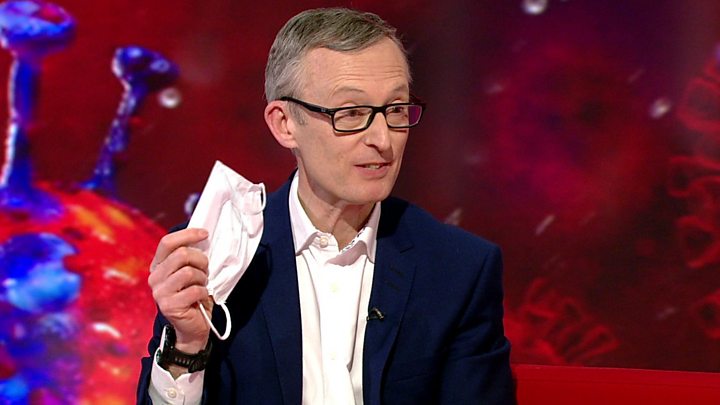
Media playback is unsupported on your device
The prime minister said schools should stay open "if possible" and follow advice from Public Health England.
Evidence suggested children were less likely to be infected and they were more likely to get mild symptoms, England's chief medical officer Prof Chris Whitty added.
Closures would also bring "a considerable burden", including on the NHS, as workers would need to stay at home to look after their children.
Mayor of London Sadiq Khan said there were currently no plans to postpone the London Marathon nor to restrict public transport.
Other measures in the plan include:
- Hospital discharges could be monitored to free-up beds, with appropriate care given in people's homes
- Helping businesses with short-term cash flow problems, including giving them longer to pay bills
- A "distribution strategy" for the UK's stockpiles of key medicines and equipment such as protective clothing, which will cover the NHS and could extend to social care
- All government departments are to have a lead person for coronavirus
The battle plan stops short of predicting how many people would be infected in an epidemic in the UK.
Worst case scenario modelling suggests 80% of people can become infected when there is a new virus like this.
But officials believe it will not be this high.
The evidence suggests just over half of people infected develop symptoms and 1% of those infected could die. The elderly and those with existing health conditions are the most at risk.
If there is a widespread transmission - which seems highly likely at this stage - it could take two or three months to peak. The peak would last two or three weeks and about 50% of people who become infected could become infected in those peak weeks.
There would then be a period of two or three months of declining cases, although the battle plan acknowledges there could be multiple waves.
The government is likely to use its most drastic measures at its disposal just ahead of the peak in an attempt to flatten it.
Bank of England governor Mark Carney said policymakers stand ready to help businesses and households through an economic shock caused by the virus that could "prove large but will ultimately be temporary".
Meanwhile, Chancellor Rishi Sunak has ordered Treasury officials to work up plans to support the public health response, businesses and the economy in his Budget on 11 March.
The health secretary told MPs that people who needed to self-isolate to protect others were entitled to sick pay.
However, Labour's shadow health secretary Jonathan Ashworth has called for emergency legislation to ensure those working on insecure contracts in the gig economy were also guaranteed sick pay.
He also urged the government to provide emergency funding to help the NHS deal with the outbreak.
As of Monday morning, the Department of Health said 13,525 people had been tested in the UK. Out of the positive cases, 12 people have recovered.
Globally, about 86,000 people have been infected, with cases in more than 50 countries. More than 3,000 people have died - the vast majority in China's Hubei province, where the outbreak originated in December.
What questions do you have about the UK's preparations?
In some cases your question will be published, displaying your name, age and location as you provide it, unless you state otherwise. Your contact details will never be published. Please ensure you have read our terms & conditions and privacy policy.
Use this form to ask your question:
If you are reading this page and can't see the form you will need to visit the mobile version of the BBC website to submit your question or send them via email to YourQuestions@bbc.co.uk. Please include your name, age and location with any question you send in.
https://news.google.com/__i/rss/rd/articles/CBMiJGh0dHBzOi8vd3d3LmJiYy5jb20vbmV3cy91ay01MTcxODkxN9IBKGh0dHBzOi8vd3d3LmJiYy5jb20vbmV3cy9hbXAvdWstNTE3MTg5MTc?oc=5
2020-03-03 13:37:23Z
52780644816034
